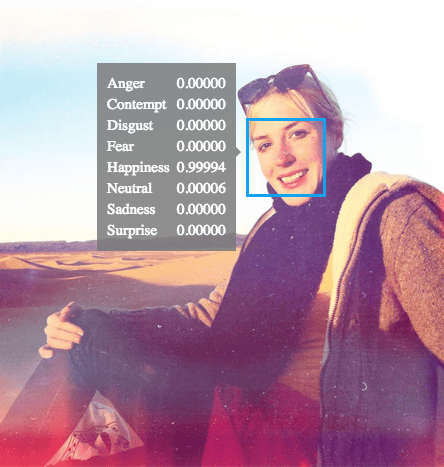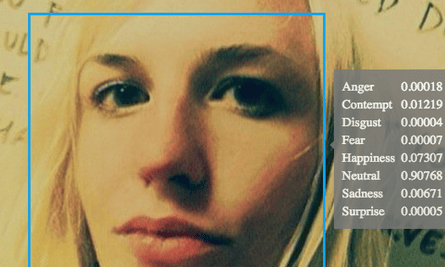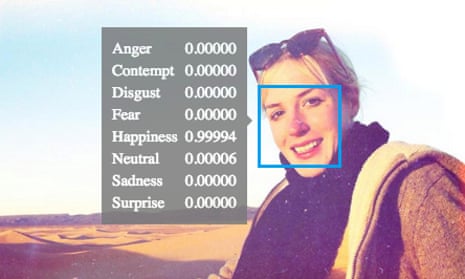Remember when Microsoft developed a tool that tried to guess our age? Of course you do – social media feeds were saturated for weeks with outraged 30-year-olds being told they were 50, and 14-year-olds given a glimmer of hope before attempting to buy alcohol.
Now Microsoft’s going further by trying to guess our emotions. Which isn’t at all creepy. Not at all. Try and guess my emotion, Microsoft. It 100% isn’t “creeped out”.
All a person has to do is upload a photograph to Microsoft’s Project Oxford website, where its beta tools are hosted. Using facial recognition software and artificial intelligence, the emotion recognition engine will create a string of numbers in relation to eight possible emotions: anger, disgust, contempt, fear, happiness, neutral, sadness and surprise.


Microsoft has released an application program interface (API) for the emotional recognition tool, which means a developer could easily produce an emotion-guessing app to go alongside the apps that guess people’s ages.
Other APIs also released on the Project Oxford website include the ability to track faces in video and detect individual speaking voices. I’m not sure how I feel about those, but if I upload a selfie right now, Microsoft could probably tell me.
But Google could also probably tell you that facial recognition tools don’t always work too well. Like the times Google and Flickr were forced to apologise for tagging black people as “gorillas”. The emotional response of users for its gaffe? Probably around 50% sadness, 20% anger and 30% contempt.

Comments (…)
Sign in or create your Guardian account to join the discussion